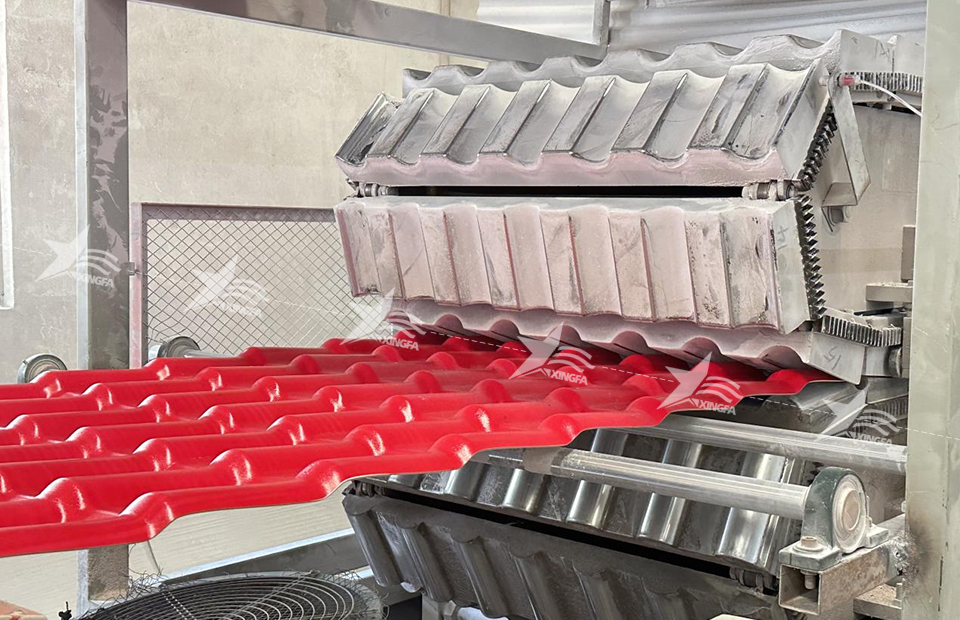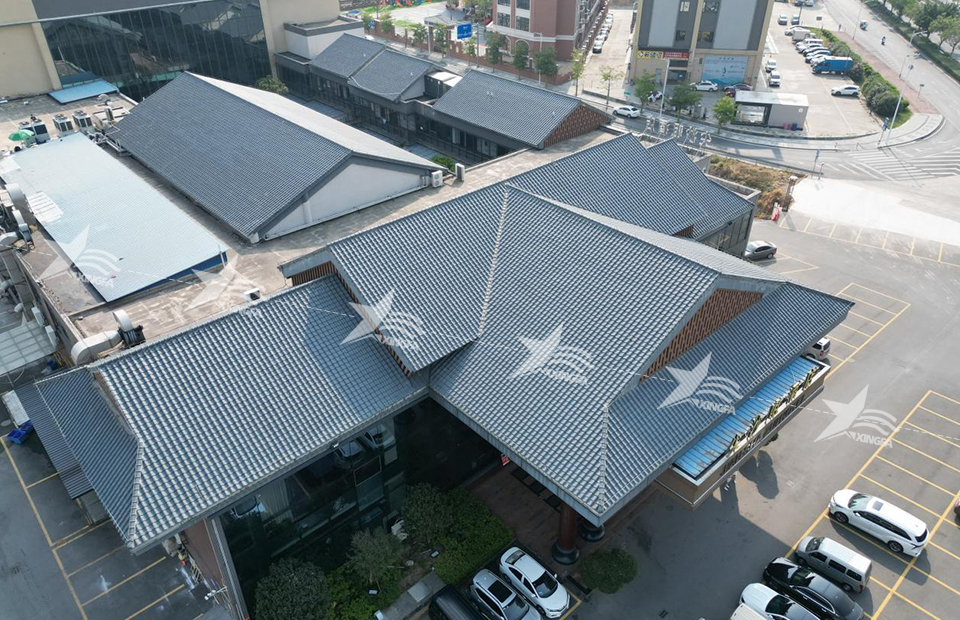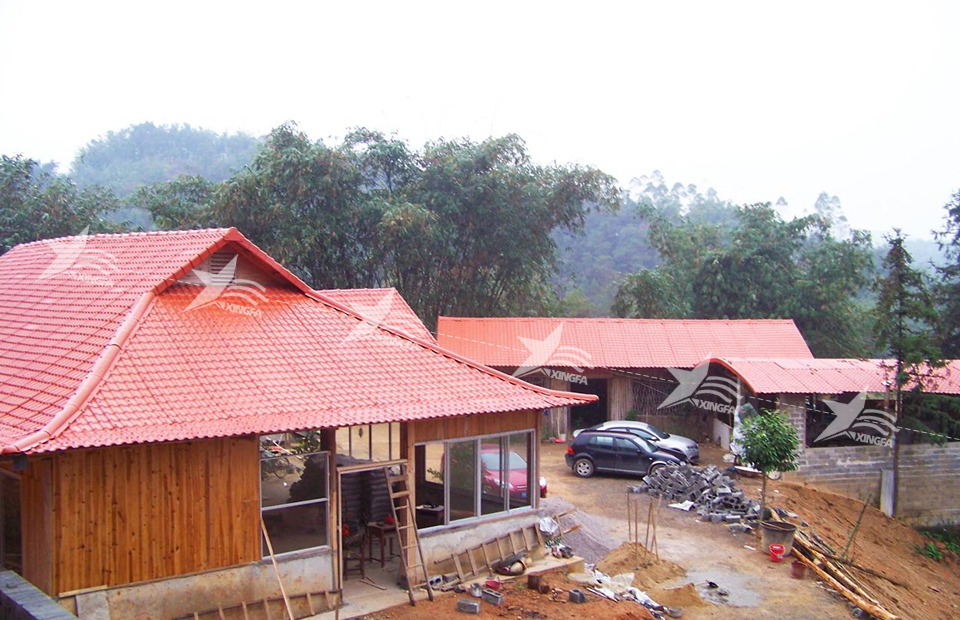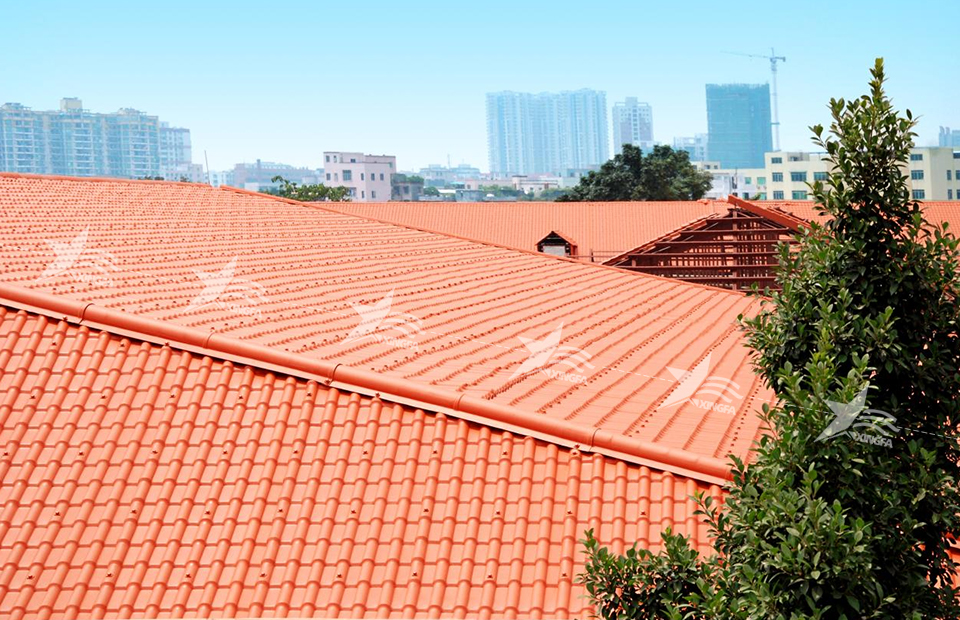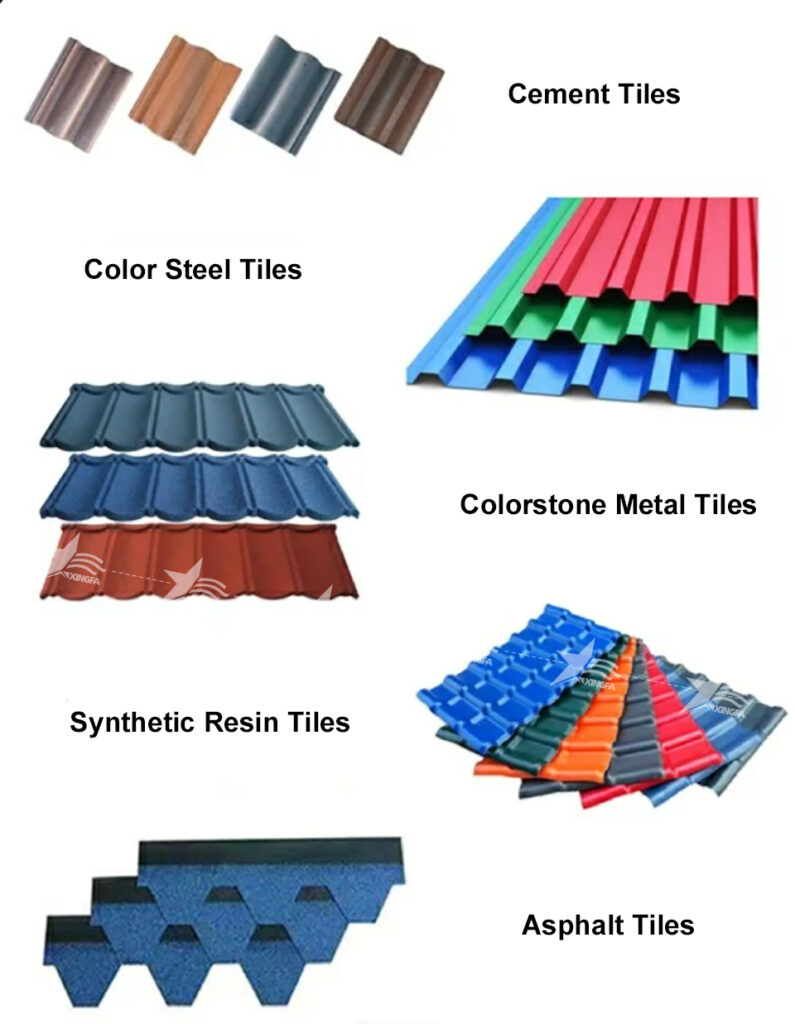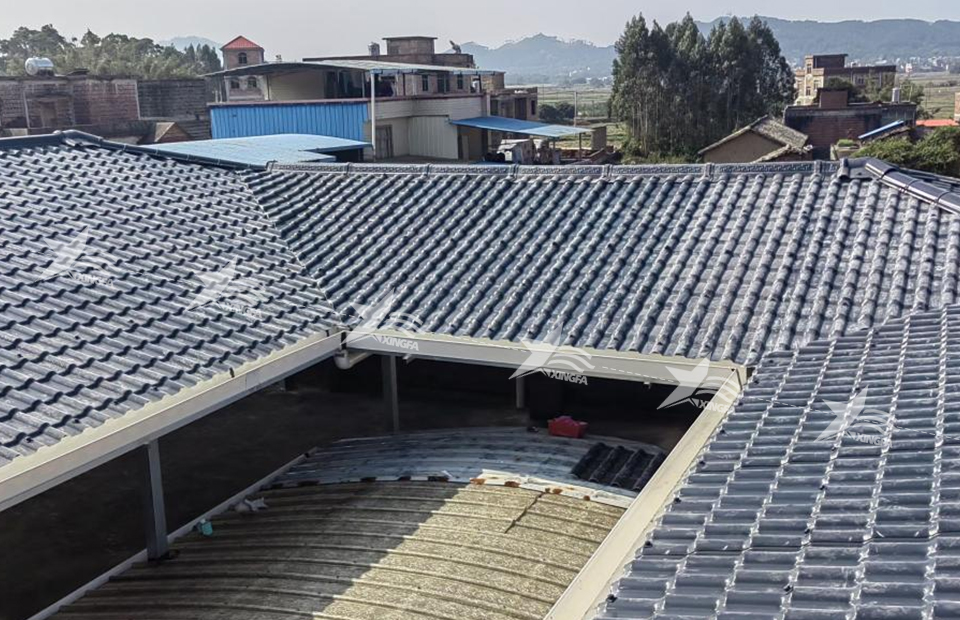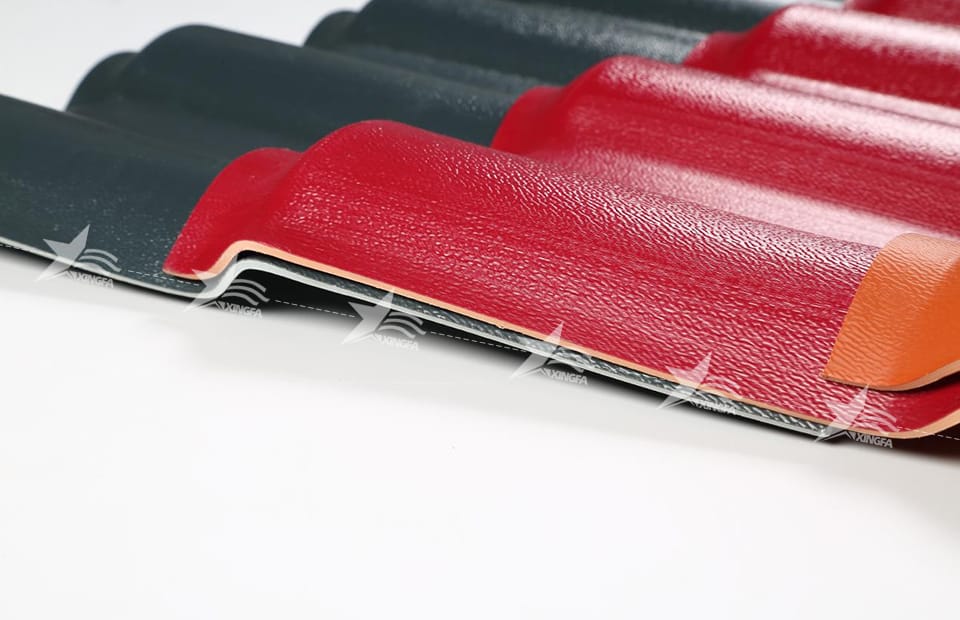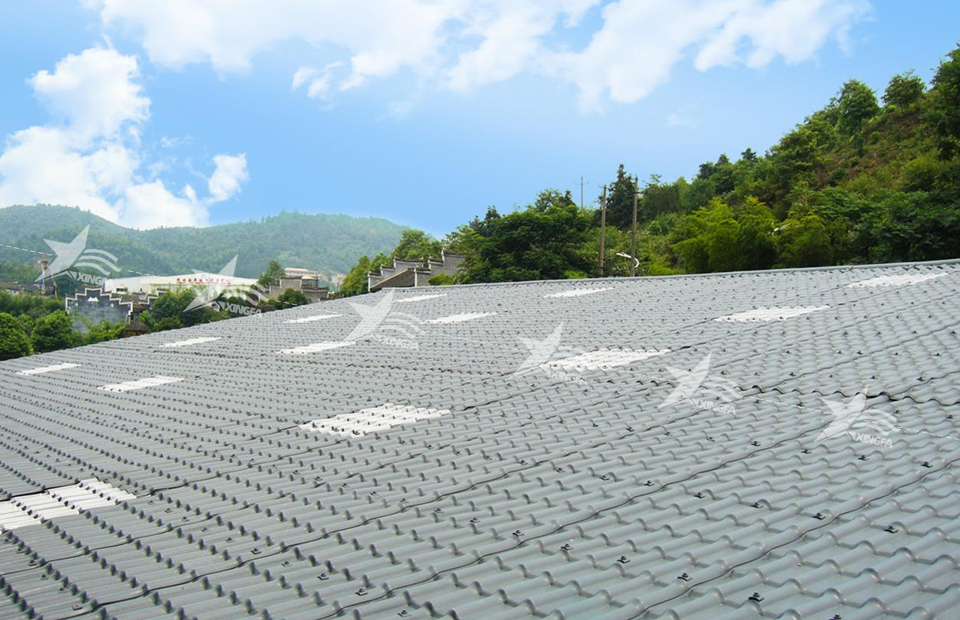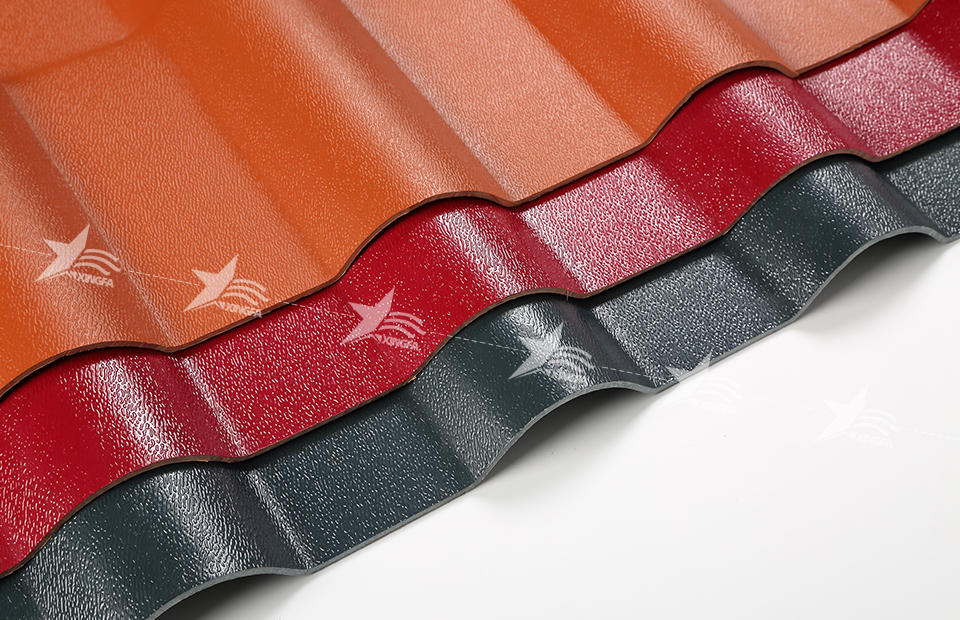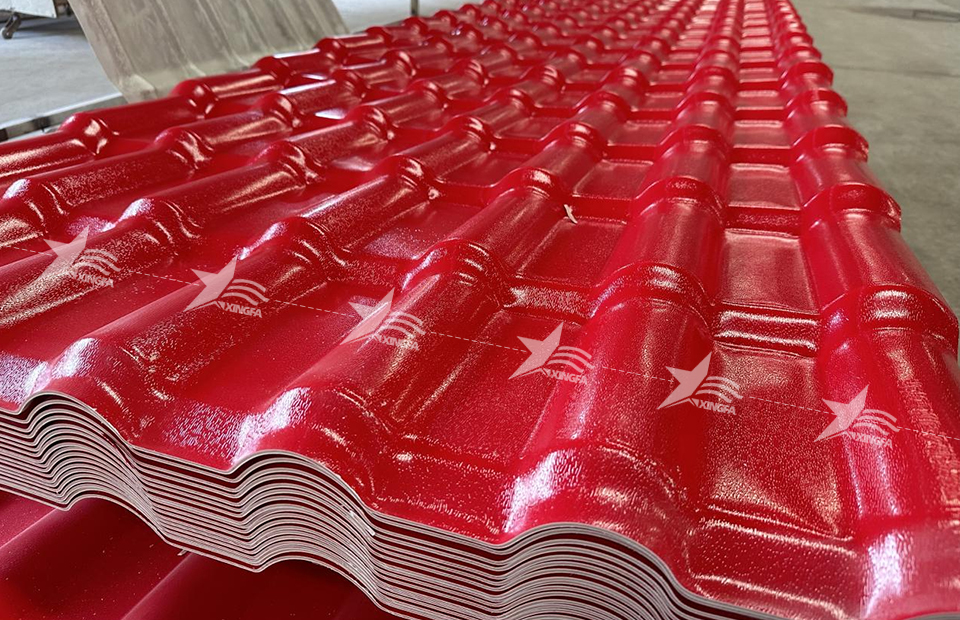Nowadays, synthetic resin tiles and PVC anti-corrosion tiles can be seen everywhere in cities, rural areas, suburbs, and other places. Looking around, the beautiful tiled roofs immediately catch the eye. So, what exactly are the differences between PVC anti-corrosion tiles and synthetic resin tiles?
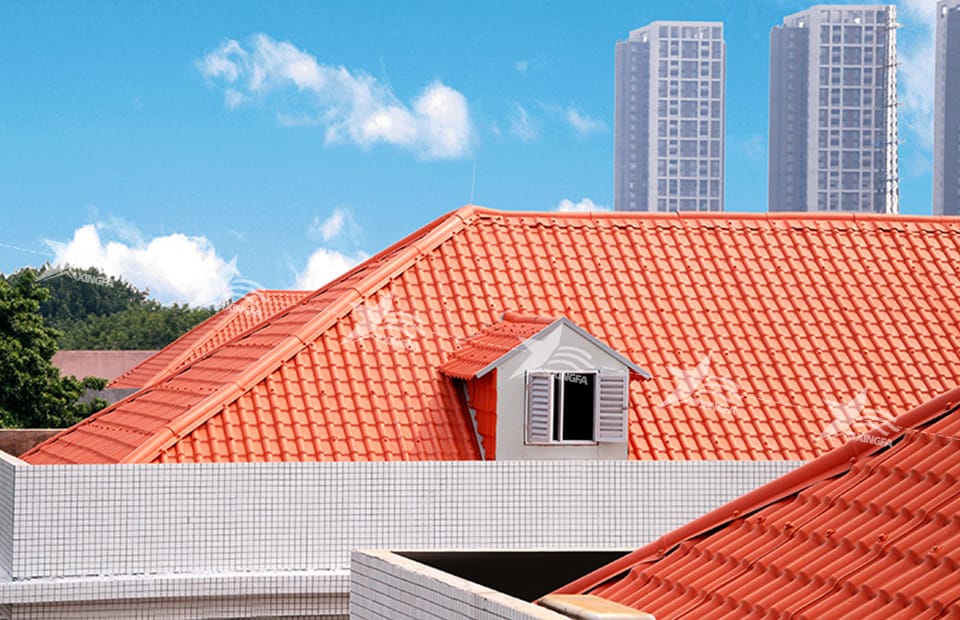
1. Different raw materials
PVC anti-corrosion tiles: The main raw material is polyvinyl chloride resin (referred to as PVC), supplemented by UV anti-ultraviolet agents and other chemical raw materials.
Synthetic resin tiles: They are divided into natural resin tiles and synthetic resin tiles. The resin tiles available on the market are generally synthetic resin tiles, which are made of high-weather-resistant engineering resin ASA material. ASA is a ternary polymer composed of Acrylonitrile, Styrene, and Acrylate rubber.
2. The characteristics of PVC tiles and resin tiles
PVC anti-corrosion tiles: Fireproof, anti-corrosion, impact-resistant, tension-resistant, not prone to cracking, UV-resistant, long service life, low noise, lightweight, time and labor-saving for installation and transportation, free of asbestos components, and no release of carcinogens.
Synthetic resin tiles: They have long-lasting color (even when exposed to harsh conditions for a long time, they can still maintain the stability of their color), long service life, light weight, good load-bearing capacity, excellent sound insulation effect, and outstanding corrosion resistance, capable of resisting the corrosion of various chemical substances such as acids, alkalis, and salts for a long time. Strong external impact resistance, environmentally friendly, insulating, fireproof, and easy to install.
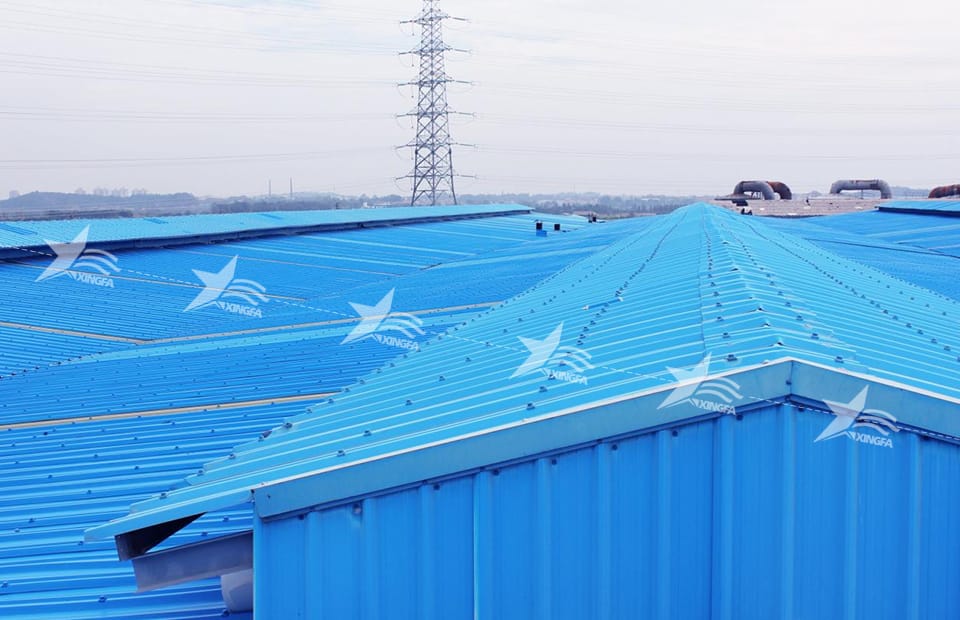
So, if it is the roof of an engineering factory building and the budget is not that large, PVC anti-corrosion tiles can be chosen. If it’s for home use or your budget is sufficient, then choose resin tiles.


